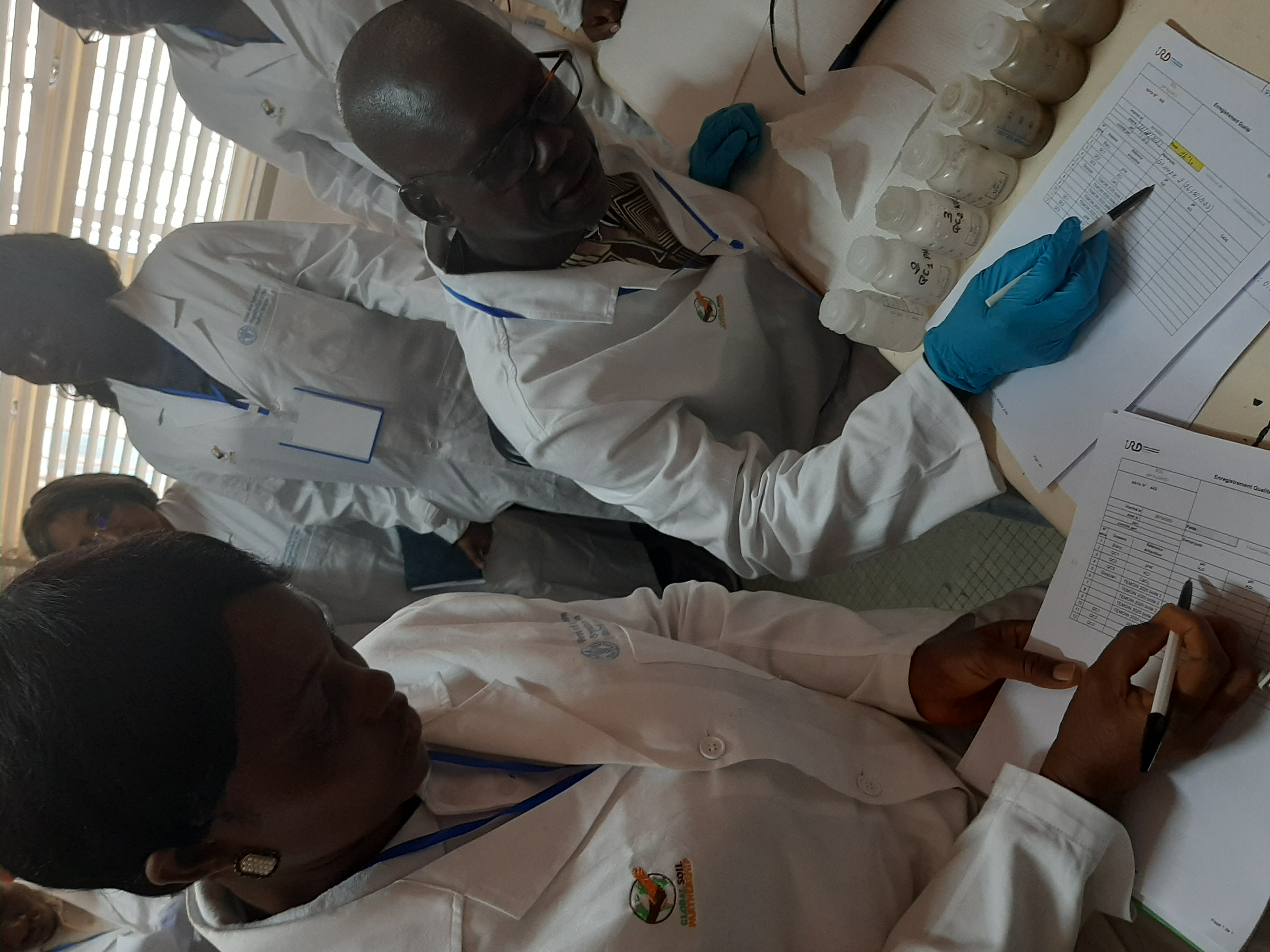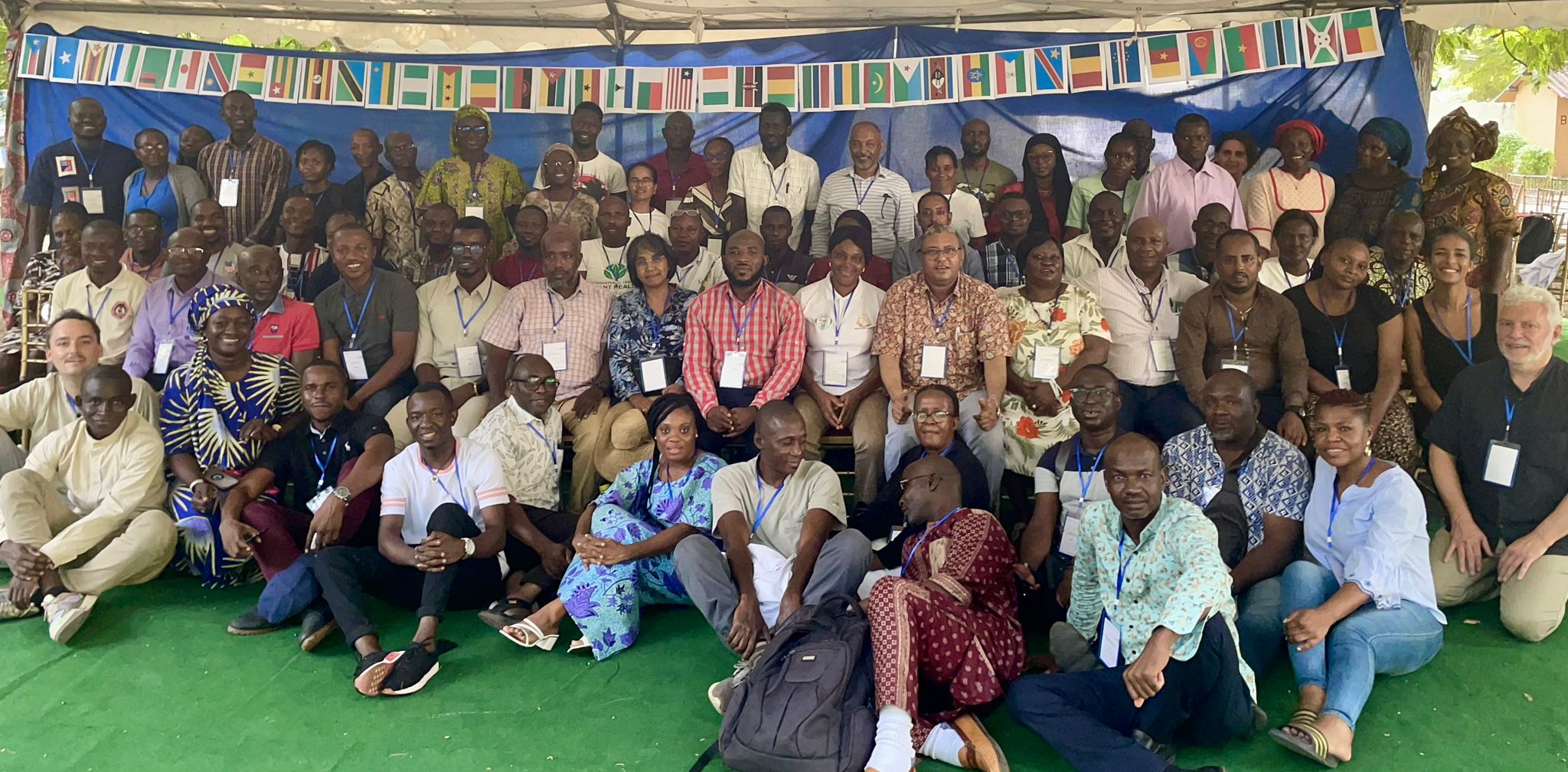Soil laboratory technicians joined efforts to improve the quality of soil data in sub-Saharan Africa
Over 70 soil laboratories technicians from 40 sub-Saharan countries convened in Dakar, Senegal, for a intensive week focused of practical training focused on quality control and soil analysis. The event, titled “raising confidence in quality measurements from soil laboratories in sub-Saharan Africa” was conducted in both English and French. It was enhanced by the participation of some of the world’s leading experts on soil analysis operating in Africa and in other regions to serve as trainers.

The meeting has been organized by FAO’s Global Soil Laboratory Network (GLOSOLAN), its African network (AFRILAB) together with the FAO Offices for West Africa and Senegal, the French Insitute of Research for Development (IRD) and the Senegalese Institute for Agricultural Research (ISRA).
The event was implemented within the framework of the SoilFER project on soil mapping for resilient agri-food systems in Central America and sub-Saharan Africa. The project is funded by the United States Department of State, with a particular emphasis on the role of soil laboratories as underscored by Ms. Nerissa J. Cook, Deputy Assistant Secretary for International Organization Affairs. During the opening ceremony of the event, she emphasized that laboratories are “a critical piece of food security”. Mr. Lifeng Li, Director of the Land and Water Division at FAO, also highlighted the collaborative effort, stating, “Together, we can measure our soils with more precision and accuracy to better preserve their fertility, biodiversity, and ecosystem services.”
 The event represented a unique opportunity for the technicians working in the soil laboratories in the region to gain knowledge and share experiences on soil analysis: “having representatives from so many countries sitting together to improve the analytical capacity of the region is a dream coming true” highlithed Ms Lesego Mooketsi Selepe (AFRILAB Chair) in her opening remarks.
The event represented a unique opportunity for the technicians working in the soil laboratories in the region to gain knowledge and share experiences on soil analysis: “having representatives from so many countries sitting together to improve the analytical capacity of the region is a dream coming true” highlithed Ms Lesego Mooketsi Selepe (AFRILAB Chair) in her opening remarks.
The training was implemented in the framework of the AFRILAB workplan which was developed based on the outcomes of the Global Soil Laboratory Assessment - laboratories’ capacities and needs 2020 (FAO, 2021). This report highlighted the obstacles faced by laboratories operating in the region in covering the national soil analytical demand and how much they were in need of building the capacity of their staff and in improving the quality control procedures. Moreover, the outcomes of the GLOSOLAN Global inter-laboratory proficiency test (PT) 2022 showed overall problems in precision and accuracy of the African laboratories.
The participants underwent training in practical sessions at the ISRA and IRD laboratories, where they conducted analyses on soil organic carbon (using various methods), pH, electrical conductivity, nitrogen, and soil bulk density. Moreover, practical sessions also covered the topics of handling soil samples and health and safety in the laboratory. Great importance was given to the topic of quality control in the laboratory, by presenting the results of the 2022 GLOSOLAN PT for the African laboratories, which were analyzed identifying the root causes and presenting the corrective actions to be taken. In this regard, participants were trained in calibrating laboratory equipment and in preparing internal reference material using basic tools. Also, the 2023 AFRILAB PT was launched. In addition, a workshop on measuring salt-affected soils was organized to share insights from AFRILAB members who attended an FAO training on the topic in May 2023.
“Participating in this event allowed us to fill some of the existing gaps in soil analysis in countries represented here, through strengthening relations and networking across sub-Sahara. I cannot wait to come back to my country and share the material I was introduced to during this week with my colleagues in my laboratory and in the other testing institutes of my country” said Mr. Adam Juma Abdallah Gudo, a young participant from South Sudan.
Participants appreciated the valuable opportunity to attend the event and have committed to sharing the knowledge gained with their colleagues upon returning home. Consequently, the event is expected to have a broader impact in the region, enabling AFRILAB to sustain its growth and organize additional capacity development opportunities to enhance the analytical capabilities of soil laboratories.

